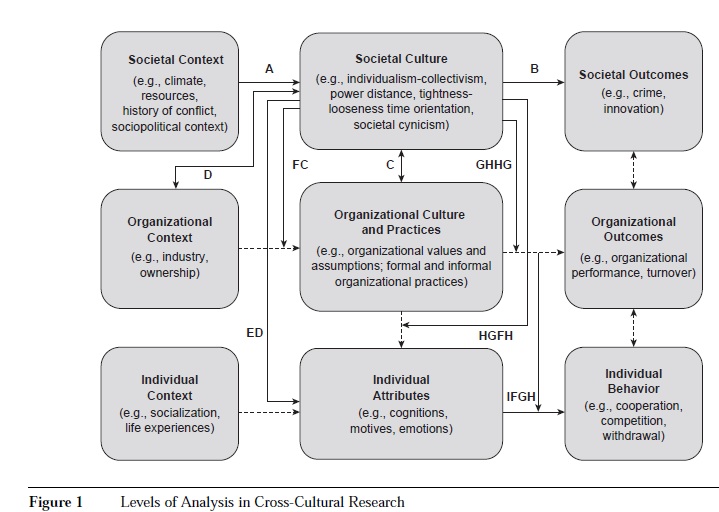High School
This article provides a comprehensive overview of the institution of high school, examining its historical evolution, organizational structure, and curriculum....
Read More
Identity Definition
The concept of identity has been defined as an internalized psychic system that integrates an individual’s inner self and the...
Read More
Self-Disclosure
Self-Disclosure Definition Self-disclosure refers to the process of revealing personal, intimate information about oneself to others. Through self-disclosure, two individuals...
Read More
Middle School
This article on middle school delves into the intricate intersection of developmental and educational psychology within the context of early...
Read More
Racial Identity
Racial identity is a dynamic sociopolitical construction and assists in the understanding of within-group differences of people of different races....
Read More
Self-Efficacy
Self-Efficacy Definition Self-efficacy is defined as people’s beliefs in their capabilities to produce desired effects by their own actions. Self-efficacy...
Read More
Montessori Schools
Montessori Schools, rooted in the pioneering work of Dr. Maria Montessori, stand as a distinctive educational model with profound implications...
Read More
Vocational Identity
Vocational identity and career identity are related, but vocational identity as a concept extends beyond career identity. Career identity is...
Read More
Self-Enhancement
Self-Enhancement Definition People engage in self-enhancement whenever they seek, interpret, or distort evidence about themselves in a way designed to...
Read More
Accommodation
This article on accommodation in school psychology, explores the multifaceted concept of accommodation within educational contexts. It delves into the...
Read More
White Racial Identity Development
White racial identity development (WRID) theory describes how White individuals develop a sense of themselves as racial beings, acknowledge the...
Read More
Self-Esteem Stability
Self-Esteem Stability Definition Some people possess immediate feelings of self-worth that fluctuate considerably from day to day or even within...
Read More
Due Process
This article delves into the pivotal concept of due process within the realm of school psychology. Due process, rooted in...
Read More
Self-Esteem
Self-Esteem Definition Self-esteem is such a commonly used term you probably already know what it is: thinking highly of yourself....
Read More
Self-Evaluation Maintenance Model
Sometimes the success of others is a source of good feelings. People take pride in their friends’ or their spouse’s...
Read More
Gifted Students
The article on gifted students provides an in-depth exploration of the multifaceted domain of gifted education in the context of...
Read More
Bullying Counseling
Bullying is a problem that threatens the well-being of children and adolescents across the world; estimates are that up to...
Read More
Self-Handicapping
Self-Handicapping Definition Self-handicapping was first defined in 1978 by Steven Berglas and Edward Jones as “any action or choice of...
Read More
Self-Monitoring
Self-monitoring is a personality trait that captures differences in the extent to which people control the image they present to...
Read More
Creation of Meaning
The creation of meaning is an essential and unique human function. Because meaning is not inherent in any action or...
Read More
Self-Promotion
Self-Promotion Definition Self-promotion refers to the practice of purposefully trying to present oneself as highly competent to other people. When...
Read More
Ego Strength
The concept of ego strength derives from psychoanalytic theory and refers to the healthy, adaptive functioning of the ego (i.e.,...
Read More
Self-Reference Effect
Self-Reference Effect Definition The self-reference effect refers to people’s tendency to better remember information when that information has been linked...
Read More
Empowerment Counseling
The term empowerment was first used in the mid-17th century. Historically, it has been described as the process of giving...
Read More
Self-Regulation
Self-Regulation Definition Self-regulation refers to the self exerting control over itself. In particular, self-regulation consists of deliberate efforts by the...
Read More
Espiritismo in Counseling
Espiritismo is the belief that problems, conceptualized by Western psychologists as being related to mental health issues, are caused by...
Read More
Self-Reports
Self-Reports Definition The term self-reports refers to information that is collected from an individual’s own description of the events, sensations,...
Read More
Familismo in Counseling
Familismo refers to a strong sense of identification with, and loyalty to, nuclear and extended family. It also includes a...
Read More
Benchmarking
Organizations use a variety of measurements to evaluate business performance, such as revenue, stock price, voluntary attrition, or employee attitude...
Read More
Fatalism in Counseling
Mental health scholars have long been interested in fatalism. In 1959 Bruce P. Dohrenwend, in an extension of the sociologist...
Read More
Self-Serving Bias
Self-Serving Bias Definition The self-serving bias refers to the tendency to take credit for successful outcomes in life, but to...
Read More
Gambling Counseling
Gambling has become a major recreational activity in the United States. In the past, legalized gambling was confined to a...
Read More
Case Study Method
A case study is an in-depth examination of entities (individuals or organizations), processes, or activities that seeks further theoretical understanding...
Read More
Happiness and Hardiness
Happiness can be defined as subjective well-being or as the actualization of human potential. Hardiness refers to an attitude comprised...
Read More
Competency Modeling
Competency modeling is a method of collecting and organizing job information and worker attributes into broad competencies. Competencies are descriptions...
Read More
Help-Seeking Behavior
Help-seeking behavior can be understood as the steps an individual, a couple, or a family takes to enter into a...
Read More
Self-Stereotyping
Self-Stereotyping Definition Self-stereotyping occurs when individuals’ beliefs about their own characteristics correspond to common beliefs about the characteristics of a...
Read More
Hope Counseling
Human weaknesses such as hopelessness and aggression have often been the focus of psychologists. This attention to weakness has resulted...
Read More
Content Coding
In organizational surveys, also often referred to as employee attitude surveys, data are gathered in two general forms, quantitative and...
Read More
Intrinsic Motivation
Intrinsic motivation occurs when an individual engages in an activity solely because the activity is perceived and experienced as interesting...
Read More
Social Comparison
Social Comparison Definition Social comparison involves thinking about information about one or more other people in relation to the self....
Read More
Learned Helplessness
Learned Helplessness Definition Learned helplessness refers to a phenomenon in which an animal or human experiences an uncontrollable, inescapable event...
Read More
Critical Incident Technique
The critical incident technique is a research process that invites respondents to identify events (incidents) they deem significant (critical) for...
Read More
Learned Helplessness
Learned helplessness is a condition that is brought about by repeated exposure to negative stimuli. The result is that the...
Read More
Spotlight Effect
Spotlight Effect Definition The spotlight effect is a very common psychological phenomenon that psychologists define as a person’s tendency to...
Read More
Symbolic Self-Completion
Symbolic Self-Completion Definition Symbolic self-completion refers to having or seeking social symbols of achievement regarding a goal important to one’s...
Read More
Cross-Cultural Research
Research in industrial-organizational psychology is increasingly being conducted across cultural boundaries to test the generalizability of Western findings and to...
Read More
Value Priorities
Value Priorities Definition Value priorities are principles that provide people with a way of knowing what they must do and...
Read More
Hallucinations
Hallucinations are abnormal sensory perceptions of stimuli that occur in the absence of external stimuli. Hallucinations can be visual, auditory,...
Read More



















